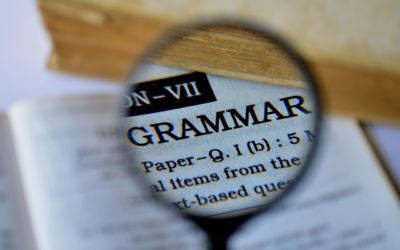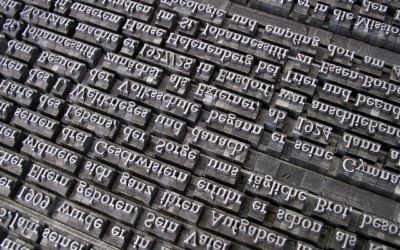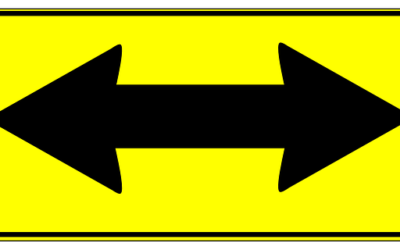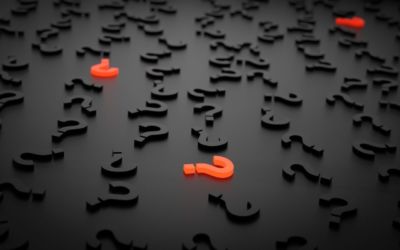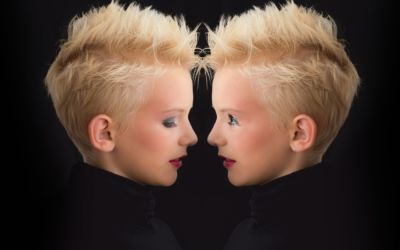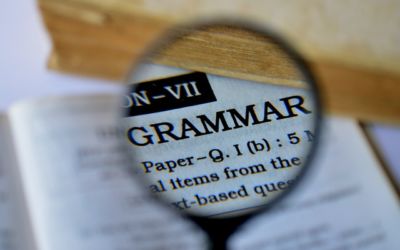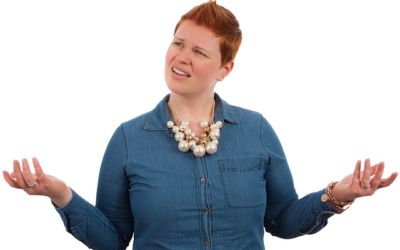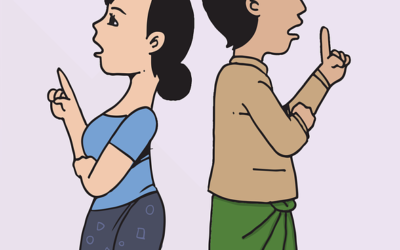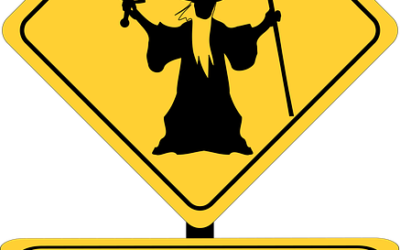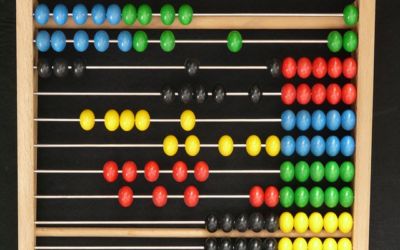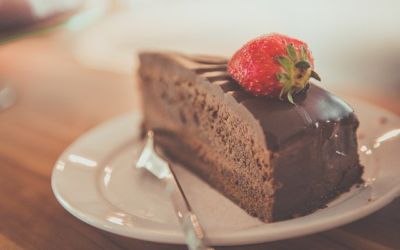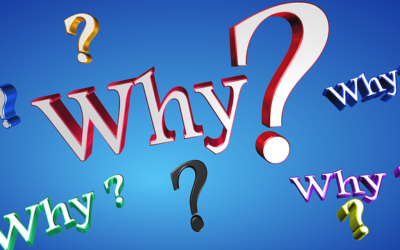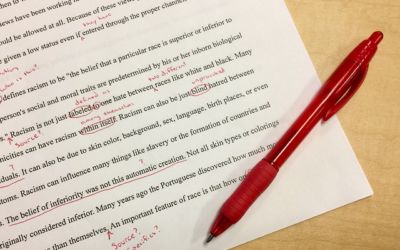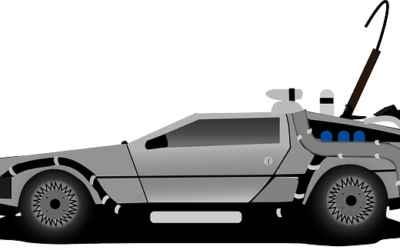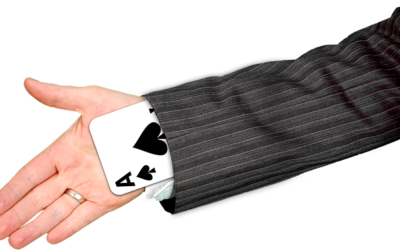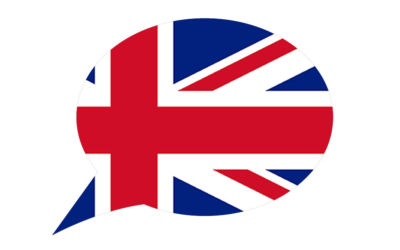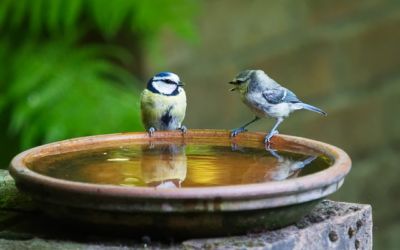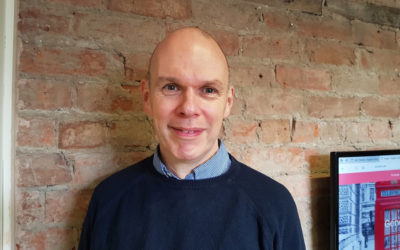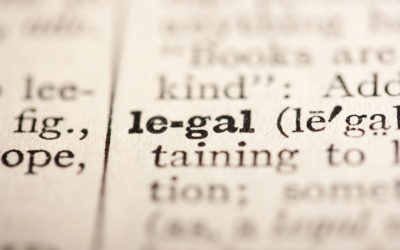The preposition we use after an adjective is dependant upon the adjective or situation. AT/BY Sometimes we can use either without changing the meaning They were surprised AT/BY my decision to leave. He was amazed AT/BY my house building skills. ...
Grammar Blog
Phrasal verb compilation 1/2
Phrasal verbs are a mix of a verb with a preposition or adverb. When these components are used together a new meaning is created. Back Maybe they will back down if you stop trying to argue with them. [withdraw - stop pursuing - give up - surrender] If someone starts...
adverbs/adjectives: what are they and how do they work?
Adverbs modify verbs, adjectives and other adverbs. Adverbs can be dividied into categories Quantity Having spent a lot of time in law lectures for a number of years, I can comfortably explain the elements of a contract. Adding a little sugar in a pasta sauce...
THE: when and not to use
When we first talk about something, we use 'a' I am going to see a film. Go shopping, have fun and buy a pen. There is a person walking up and down the street outside my house. After the first time, we say the, becuase the listener knows which...
Word order: object/place/time and adverbs
The verb and object normally go together On Saturday we like to wash the car. Does the dishwasher door open vertically or horizontally? When the clouds clear, apparently we will have a beauiful sunny day until the end of the week. If the verb has an...
Question structure: do/does and prepositions
Questions are created by changing the word order statement It will rain tomorrow He will say goodbye tomorrow at the pub. by placing the auxiliary before the subject, we create a question question Will it rain tomorrow? Will he say goodbye...
Prepositions: at/on/in/for
We use the prepositions AT IN ON for both time and places. TIME ON for a specific day Next class is ON Monday. ON your birthday, we have to do something. ON New Years Day, there will be lots of fireworks. AT for a period of time...
Comparative phrases using ‘as’ ‘much’ ‘many’ positive and negative
When something or someone is similar to something or someone else we can use as with an adjective Your cooking skills are as awesome as mine. We were as surprised as each other when the wall blew over. we can use as with an adverb If only the new...
past continuous – when do we use it?
Form Past continuous is formed be + 'ing I was looking through the window. She was driving her sports car. It was raining very hard. The door was opening and closing all night. We use past continuous for a longer action that was in...
Reported speech
Reported speech is what we use to report what someone has said making changes to the words that the original speaker actually used. She told everybody that she will 'step down' [resign] in the coming weeks. Reported speech is used: when the exact words are not...
Confusables
Confusable are words that look or sound alike but have different meanings. There are many and we will look at some common ones here. It may be a good idea to use a good online dictionary with a listening option where you can check the pronunciation. ...
Article use: THE and A/AN
We use THE when there in only one of something Rungradi is THE largest football stadium in the world. THE universe is so far only 4% explored. THE capital of Wales is Cardiff. We use A/AN to explain what kind of thing something is A tomato...
Phrases with time
Beyond telling the time, there are expressions we use that are very useful and common to have time to kill [to have spare time] I am sitting here in the garden because I have time to kill. If you have time to kill, come around for a beer. We had...
Conjunctions: contrasting
There are numerous ways to connect two contrasting ideas. In spite of not drinking alcohol, I sat in a bar for two hours with my friend talking about old times. There are 2 clauses here. There is a surprise element because it is not generally...
Phrasal verbs with UP
UP in phrasal verbs can mean a number of things. Remember, phrasal verbs are a combination of words such as a verb and an article which together provide a meaning which is different to the individual words. UP can mean an upward movement or increase ...
Permission: asking, giving and refusing
Certain verb forms follow different phrases: Can he/she + infinitive Can she continue upgrading all the software as she is the best at doing this? Can he think about anything else apart from food? _______ Can also works with other pronouns...
Adverbs
We form adverbs by adding 'ly' to adjectives. They wanted to be candid when they were speaking. [adjective] They decided that speaking candidly was the only way to deal with the situation. [adverb] Is it really necessary to be angry all the time?...
MAKE or DO?
Make and do are two different verbs and they are generally not interchangeable. As a guide, generally MAKE focuses on a result and DO focuses on a process. MAKE and DO can also be conjugated to express present, past, future, simple, continuous and perfects....
THERE and IT
There When we talk about something for the first time, we use there to say that it exists There is some jam in the cupboard. There is a lot of traffic on Conway Road today. There has been a significant change in the weather. It We...
any or some
Generally we use 'some' in positive sentences and 'any' in negative sentences some Somewhere, somehow, there is always a way. We have some batteries in the cupboard. Can someone let me in? Something is happening over there! any We don't...
Prefixes: creating opposites in adjectives
Prefixes are components or particles that can go at the beginning of adjectives to give them an opposite meaning in What a considerate man he is! What an inconsiderate man he is! She is without any doubt, a competent employee. I would recommend...
Preposition + ing
Many prepositions that are followed by verbs that end in 'ing Would you be interested in going to a football match? Those are the best skis for skiing on this mountain. They had no idea at how good she was at editing sound recordings. What about going there...
Giving opinions: not sounding offensive and making generalisations
Giving Opinions Imagine a world where everybody just said what they wanted about everything: People take things to seriously. Builders and lawyers cost too much. I didn't like the food you made for me. Shut the door! Whilst there are times when it...
Preposition use with adjectives
Prepositions change from language to language. Rather than have a general rule or pattern to follow, we often have to remember what they follow. Here we focus on the adjectives that they can follow. Adjectives followed by OF At this time, we are unaware...
Colloquial English
Colloquial (adjective) language is informal day to day English expressions. Mandy has bumped into Fred at Liverpool Street Station. 'What's up Fred? You are looking pretty unhappy!' 'Oh you know, this and that, things are bugging me at the office.'...
Making comparisons using comparatives and superlatives
Comparatives are words or expressions used to change the intensity of adjectives. (see down page for superlatives) Maybe the food we are eating needs to hotter. Perhaps the doctor will tell me that I am heavier than before. It is expected that tomorrow...
New vocabulary: Meaning from context
Generally the aim clearly of English classes is to learn how to speak English as well as well as possible. Part of the journey is being able to establish the context of words which maybe do not know or understand. Can you guess the meaning the meaning of the following...
Present continuous and present simple in use
We use the present continuous to describe activities taking place now: 'I am breathing.' 'I am reading this blog.' We use present continuous to describe activities that happen 'around now' and not necessarily at the time of...
Describing activities: do, play or go to?
We use different verbs to describe activities. The type of activity dictates with verb we use. We can use 'do' with activities we do in a place Shelly likes the idea of going to do yoga Jenny wants to do Judo as it may help with her confidence. If...
Defining and non defining clauses
defining clauses We use defining clauses to to give essential information about someone or something. The 'essential' information is necessary to understand what is being referred to. A defining clause will typically follow the noun to which it refers. There is...
Exaggerated expressions: examples of when and how we use them
The exaggerated expressions below are informal expressions that we use to make a point. We often use them in day to day English to communicate the intensity of feeling or activity in a positive or negative way. The important thing here is context; there could be times...
Question forms: object/subject and the use of ‘do’
Question forms The typical word order in questions is: Question word | auxiliary | subject | verb examples: When does the class begin?, How does she do that?, What is that showing? ____ subject/object the subject in a sentence performs the...
GET or TAKE what is the difference?
There are some expressions that only use one or the other GET Lets get a coffee! I hope I don't get a cold! They will get some shopping. I don't get it. (I don't understand) It is Friday and I am going to get drunk...
Mixed conditionals: what are they and how do we use them?
Sometimes conditionals are mixed, meaning that the if clause is not the same as the result. PAST/PRESENT If I had (past) won the lottery I would (present) be rich If I had finished (past) my work yesterday, I would (present) be more relaxed today....
Gradable and strong adjectives
Gradable adjectives can be minimised or intensified by an adverb to change the intensity of an adjective. Maybe for example, we want to talk about the sun: The sun is very bright today. The sun is very hot on the beach. When the sun is high in...
Double meanings: what do you mean?
Like in many other languages, there are expressions, words and phrases that have more than one meaning; their meaning depends on the context. dawn (noun/verb) dawn - the beginning of the day (noun) I wake early every morning and go to the woods...
Present continuous and Present simple
Both of these talk about the present but they are not interchangeable, so what's the difference? Present simple We use present simple to describe the general situation; things that are true for a long time or permanent: I am British. I speak...
‘Get’ phrases
definition of 'get' - to gain, buy or earn something 'to get a cake for your birthday' - to go somewhere and bring something back 'I will get my car and come back' - to receive of be given something 'He got and engagement from his fiancé'...
Emphasising superlatives
Are you excited? Superlative - an adjective or adverb that describes a maximum quality of something You are the best! The weather is amazing! They look gorgeous ♥♥♥♥! These sentences are fine but sometimes is something is so special, we...
Business idioms
Idioms - definitions A group of words in a fixed order that have a particular meaning that is different from the meanings of each word on its own The style of expression in writing , speech or music that is typical of a particular group or person etc We...
Used to: previous habit/accustomed
We say 'used to' commonly in English in two situations 'Used to' is a common expression to describe a previous habit or behaviour: When describing a previous habit or behaviour, we are talking about something that happened repeatedly or for a period of...
Irregular Plurals
In general we expect plurals to simply end in an 's' but this is not always the case. addenda - additional material added to the end of a book or publication. (formal) 'Please refer to the addenda regarding additional matters.' agenda is the...
Modal verbs – levels of certainty
Modal verbs are often used to sound polite May I have an ice cream please? Would you like me to open the door for you? Might you prefer if someone else did it? Modal verbs are also used used to convey a degree of certainty ...
Common acronyms and abbreviations
An acronym is when the first letters of words are used to formulate a word or expression. This new word or expression may create a new 'real' word or just some letters which are pronounced as one word or separate letters. App (noun) Pronounced as...
Double meanings
Some words mean more than one thing and are used in completely different contexts: Top She is a top player. (she is a really good player) The top of the web page has a link for other options. (position on the webpage) Sweet What a...
Present perfect in the future!
We have seen that we use the present perfect to: connect the past with the present I have been studying English for 5 years (I still study English;now is year 5) Recent action I have just eaten (a short while ago I ate) ...
Like
Like is used to describe an affection for someone or something We like speaking English. Everybody like a pretty person. Like is also used to ask for description of someone or something What is the United Kingdom Like? ...
Simple or continuous; whats the difference?
Generally speaking we use the simple present to describe the general situation I work at home She likes cars They speak English well we use the present continuous to describe something happening right now or is happening 'around' this time ...
body part expressions
Expressions in English are o considered more useful maybe to upper intermediate level students and beyond: Feet to put one's foot in it If someone puts there foot in something, they say something that causes an embarrassing problem...
Reflexive pronouns
Reflexive pronouns These end in elf (singular) or selves (plural) and are used when the subject and object are both the same. These pronouns include myself, yourself, ourselves etc I like to practise English by myself. We went by ourselves. Do you cook...
Subject and Object Questions: DOES
Subject questions seek information about a subject Who = person Who opened the window? Who drove the car? Who cooked dinner? Subject questions are about the person or thing that performs the action. What did that? What did you see? Who left...
Shall and shan’t
When making offers and suggestions in questions, we can use shall. Shall I take that for you? Shall we go there today? We can also use the negative shan't. Shan't we try? You shan't go to the ball! Employees shan't work flexi-time during...
which or what?
when there is a 'known' choice or restrictive possibilities we use which Which ice cream would you like? (there are generally known possibilities; chocolate, vanilla, strawberry etc)... maybe the person choosing can see what is available... Which is your...
Work expressions
There are many expressions that we use either at work or to do with work. Below we will look at some, explain their uses and provide some examples: Many people work in a dead end job (informal) If someone works a dead end job, They have a job...
Quantifying and being specific with a/an, one, quite a few, a few etc
Generally speaking, we use 'a' or 'an' before unspecific nouns or maybe when we are talking about something for the first time: Would you like 'an' apple Carry on like that and you will get a slap in the face! We can use 'one' to emphasise the...
Cleft Sentences
Cleft sentences are often used to focus attention on the key message of a sentence. In cleft sentences, the message of the sentence is divided into two parts. We may do this to emphasise. Cleft means to divide or split. to focus on an action we use...
Adjectives; when to use ‘ed and when to use ‘ing
https://youtu.be/s5NkhFqumUo
make or do?
In English we have 2 verbs which mean the same as one verb in many other languages but in English they are quite different. The good news is there is a way to try and remember this: Make Make is more about the focus on a result. We make a...
Suffixes
https://youtu.be/faZxUKRElkg
Same verb but different meaning
Typically we now that we can use the simple present to describe the general situation: I like vegan food. I speak English. I live in the UK. We use the continuous from to describe an ongoing action is happening now: I am reading this blog....
Comparatives
Comparatives are what we use to compare quantity by way of increase or decrease. Depending on the length of the word there are rules as to what happens to the adjective which we will look at below: Most one syllable words We add 'er': Cold - colder Hot -...
Present perfect
https://www.youtube.com/watch?v=hBXvrVh_nCU&t=88s I visited London (simple past) Concluded event in the past; needs a time reference. I visited London yesterday/last week/ a month ago Also: I ate something bad earlier and don't feel well My...
Adjective order in a sentence
Adjectives in English Grammar. How to put adjectives in the correct order in a sentence? We use adjectives to describe the quality of something, such as colour, age, origin, material, opinion and material. Native and fluent speakers will normally (hopefully) put...
talk, speak, say, ask, tell ….
TALK Firstly, talk is a verb that simple describes the action of moving one's mouth and producing words. Talk suggests a conversation or discussion Students like to talk in English. Feel free to talk amongst yourselves while we are waiting to...
Verbs: ‘ing forms
There are of course many ways to use verbs. This post is just another way or two to to use the 'ing form. after prepositions the verb needs to be 'ing On opening the window, I was able to see and smell the luscious green countryside for the first...
When we don’t use ‘more’..
When using comparatives and superlatives, there are numerous possibilities depending on the topic. This building is more tall than the one in Cardiff Although it may sound strange, the above sentence is said to be correct. It would be more common to add...
Pronunciation: heteronyms
Heteronyms are words that are spelt the same as other words but they sound different and have different meanings. live (verb/adjective) I used to live in São Paulo. (verb) - /lɪv/ The game is live on TV at 8pm. (adjective) - /laɪv/ tear...
What formations are followed by infinitive or ‘ing’?
There are situations where it is possible to use either 'ing or the to + infinitive. For example after begin and start we can use either: I began eating/to eat my dinner before I finished cooking it. Before they start complaining/to complain, they should...
There are a number of ways to describe the past. The following sentences describe two activities in the past. The 'devil in the detail' (the contained important information) is that the sequence of events differ. I ate when she left. Event 1 (single...
Body idioms
What is an idiom? An idiom or idiomatic expression consists of words which have a different meaning when used altogether. We use idioms in informal situations to explain an opinion, idea or maybe make a joke. To play something by ear If you...
British v American English
English is spoken both in the UK and US but there are differences and people in both countries understand each other very well. In UK day to day English, whilst some 'Americanisms' have crept into British English, there are some words that are not used here! ...
‘Thinking’ phrasal verbs
What are phrasal verbs? Phrasal verbs consist of a verb and preposition or adverb. Phrasal verbs have different meanings to when the words are translated separately. We use phrasal verbs everyday, as they don't translate easily, they need to be remembered....
Make or Do?
Something that can cause a problem for students learning English are the verbs 'do' and 'make'. One possible reason can be that in the student's mother tongue language, only one verb is used instead of two. One example of this can be found in Portuguese where the verb...
Relative pronouns (2): who, which, that, where, when, whom, whose
Relative pronouns are used to connect a clause or phrase to a pronoun.The clause modifies or describes the noun. The relative pronoun used depends on the noun it is referring to. I know someone whose car looks like it's been in a hay bale (see above)!...
When to use the present perfect simple or continuous
When do we use present perfect continuous? We use this form to measure duration of a present action or to specify when it began I have been learning English since I arrived in London. We have been flying for 9 hours now. When describing...
Reported and direct speech
Direct speech describes the exact words that is said or written by someone. When written, direct speech is normally written inside quotation marks: 'do you understand the above?' 'does that make sense?' 'I understand this' Reported speech ...
When and when to not use Articles: ‘the’, ‘a’ and ‘an’
We use the before a specific noun. A specific noun can be a noun we know. We could know this noun because it belongs to us or we have recently talked about it. I will take the car to the supermarket They saw the crack in the wall, it will need to...
The difference between ‘until’ and ‘by’
Take a look at these sentences I need to do this until September 30th. They will send this until the end of the day. Your tax return needs to be done until the end of March. All these sentences communicate deadlines, but there is a level of...
The use of ‘that’
'That' is very common in day to day English and can be used in different ways. As a determiner That's my mother. Please can you pass me that book. I know that man. We can use 'that' to denote that something is not close to the speaker. We...
Multi word verbs
https://www.youtube.com/watch?v=xZJ7S2blevY
Contract Law
In England and Scotland, law is derived from statute (law made in parliament) and case law (law made by judges). A statute is also called an Act of Parliament and has been the most common source of contract law. How statute is created A proposal...
Comparatives and superlatives: rules and use
This can cause difficulty for learners as not all languages make a distinction between comparatives and superlatives. In English, there are rules which we visit below. comparatives are adjectives and adverbs that end in 'er' In December it is winter...
Expressions Describing Sickness
Talking about being sick or having health problems there is plenty of opportunity to use English. An interesting question that keeps 'coming up' in classes is what's the difference between ill and sick and disease? ill (adjective) Similar to 'sick',...
Money Expressions
Money is something we all need and use and we have many words and expressions that we use when we refer to it. easy money (money obtained for little work or from immoral conduct) Sheila enjoys making cakes and makes a lot of money doing it. She says that the...
Indefinite article
Confusables
There are a number of words that can cause problems for students learning English. In today's blog, we have included some common ones which at some time or other causes difficulties. Below we will include meanings, some phonemes for pronunciation and examples of use....
Procedural steps
Legal English: Verb Patterns
It is imperative that when two verbs are used together, the correct verb is used for the second verb. As there are no rules that can be turned to, below are some examples which with practise can help students to remember. The key to remember is that the from of the...
Idioms
‘Back to the future’
Past verb forms with present future meaning The concept of past tense verbs being used to describe the past is all too common. When are verbs referring to the past used for the present and future? If you took more classes and practised...
Come or GO?
A/AN – NOT what you think!!
What were we taught at school? It's simple! if the first letter of the following noun or adjective is a vowel, we use 'an': When I go to work today, I will buy 'an' apple. 'An' interesting thing about learning English is that you discover things...
Present Perfect
Present continuous: habitual action/states/happening now
Form and use Also known as the present progressive, we use the present continuous with a form of be (am, is, are, were): You are you doing this. We are doing that. They are going to do that. Generally this form is used to describe something...
Pronunciation of ‘ED’ verbs
Major Variants
Students with a good level of English are encouraged to communicate through speaking and writing in ways that do not follow conventional patterns. This way, it will enable the speaker or writer to personalise what they would like to say. Whilst intonation can...
TO or FOR: infinitives/direction and benefit
'To' and 'for' are prepositions which can be problematic for learners. This can be because learners have to make choices and prepositions that are not necessary in their own language. Often the choices don't have anything to do with the meaning which makes them...
Passive Sentences
What are passive clauses? Clauses are either active or passive. In active sentences, the subject of the sentence performs the action. In a passive sentence, the subject has an action done to it. Active clauses (subject performs the action) ...
Adjectives created from nouns: prefixes/suffixes and word order
Adjective forms can be created from some nouns and verbs by adding a prefix or suffix. prefixes (in)tangible Tangible evidence is obtained from reliable sources. Intangible assets cannot be touched. These include copyright, trademark and goodwill....
Avoiding repetition: auxiliary verbs and ellipses
Ellipsis and substitution can cause problems when learning English as it is easy to expect more information than what has been provided. Either information is left out (ellipsis) of a short word is used in it's place (substitution). Ellipsis When speaking or...
Multiword Verbs
Multiword verbs are an important part of speaking English. They are created using a verb and 'particles' such as adverbs and/or prepositions. 'I drank so much at the party I did not come to until the afternoon.' (wake up) 'After the break up of the...
Major variants: word order in sentences
In day to day English it is inevitable to hear examples of sentences that do not follow the basic rules. To gain fluency it is necessary to consider different patterns and orders which do not follow basic principles. Whilst for example questions and statements...
Conditional Sentences
There are generally four types of conditional sentences, each of which have a range of possible forms. We do not use any special forms of verb in English when using conditionals like in other languages. What is a conditional sentence? A conditional...
hear or listen? – see or look?
Hear As long as there is a sound and someone's ear can receive and process the sound, someone can hear. Hearing is a physical activity of sound falling on ears, and the ears ability to process the sound. We can often hear noise because it exists and we are...
Salutations and Letter Writing
The salutation depends on who the recipient is: 'Dear Sir or Madam/Dear Sirs' Law firm or company 'Dear Sirs' 2 men, names unknown 'Dear Mesdames' 2 women, names unknown 'Dear Sir or Madam' Name and sex unknown 'Dear Madam' Woman,...
used to/would
We can talk about things in the that past using used to and would. These are used as alternatives to the past simple to describe repeated actions and habits that took place over a period of time. Whilst it is not mandatory to use used to and would in these situations,...
Confusing words
beside (next to - at the side of) / besides (in addition - also) The chip shop is beside the library. I left my phone beside the microwave. Besides not being happy, you are also rude to everybody. At the meeting, we agreed that besides the issue...
Formation of Contracts
offer + acceptance + consideration = contract For a contract to become enforceable, there needs to be an offer (from the offeror), acceptance (from the offeree) and consideration. Consideration In common law, consideration is the exchange of one thing of...
Modal Verbs: Permission, Possibility, Probability, Imperative
can - may - need - should - ought to - have to - be able to - must Modal verbs are auxiliary verbs and are used in conjunction with main verbs. They are sometimes called modal auxiliaries. We use modal verbs to make assessments, judgements and interpretations....
‘Dummy’ subjects: it and there
Generally English requires verb phrases to have a subject. Without a subject, the clause would be ungrammatical. I am learning English. They are practising their speaking skills. The car is going fast. There are situations where we don't use a subject....
Talk, speak, say or tell?
Talk and speak Talk and speak are very similar and can be used interchangeably in many situations: We are going to talk about how English is becoming a more popular language. They will speak about the changes in learning patterns. Formality Speak (irregular...
Question Tags
What are question tags? These are structures that we add to the end of sentences. The tag turns a declaration or imperative statement into an interrogative. Examples Today is Wednesday, isn't it? They are over there, aren't they? This does change things, doesn't it?...
Heteronyms
The word 'live' is an heteronym. A heteronym is a word that has a'twin' that looks the same but is pronounced differently and has a different meaning. The pronunciation depends on the context: Live (verb)/lɪv/ People live in that house How can we live this way? Live...
Irregular Plural Forms
These are plurals that do not follow the general rule of simply adding an 's' for example: cars, houses, lawyers etc. Lets look at a few, some have more than one possibility: Index: indexes, indices There is more than one index, remember to check all the...




